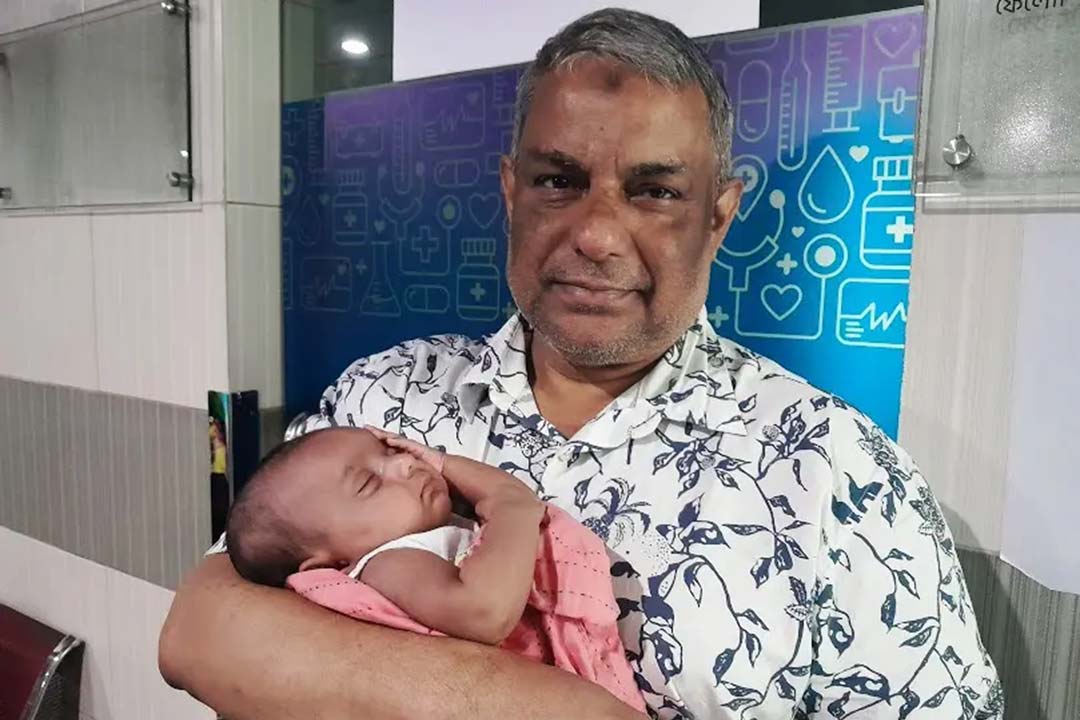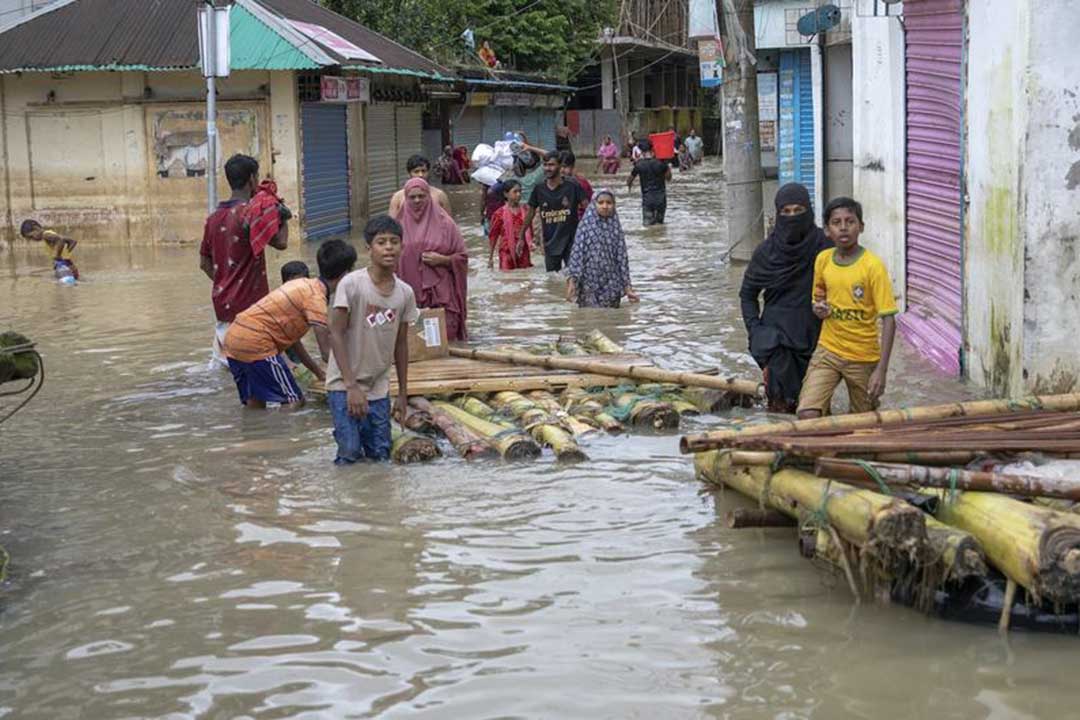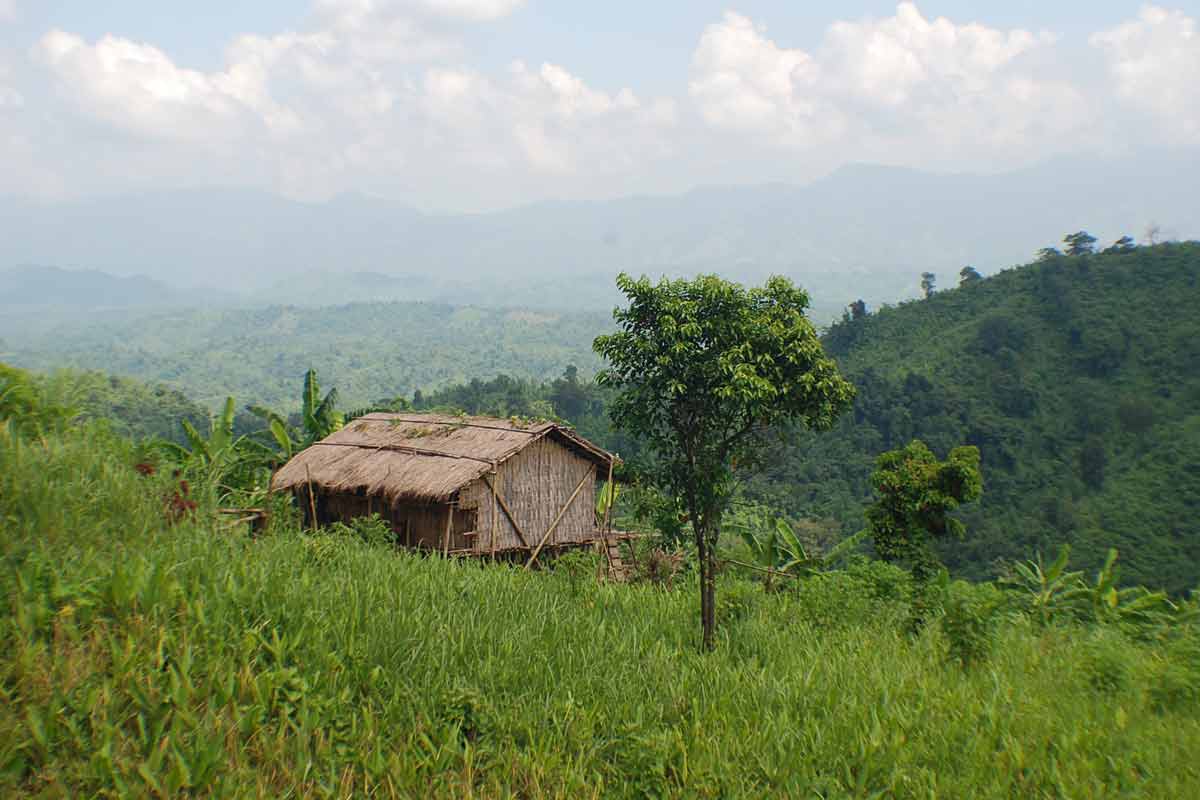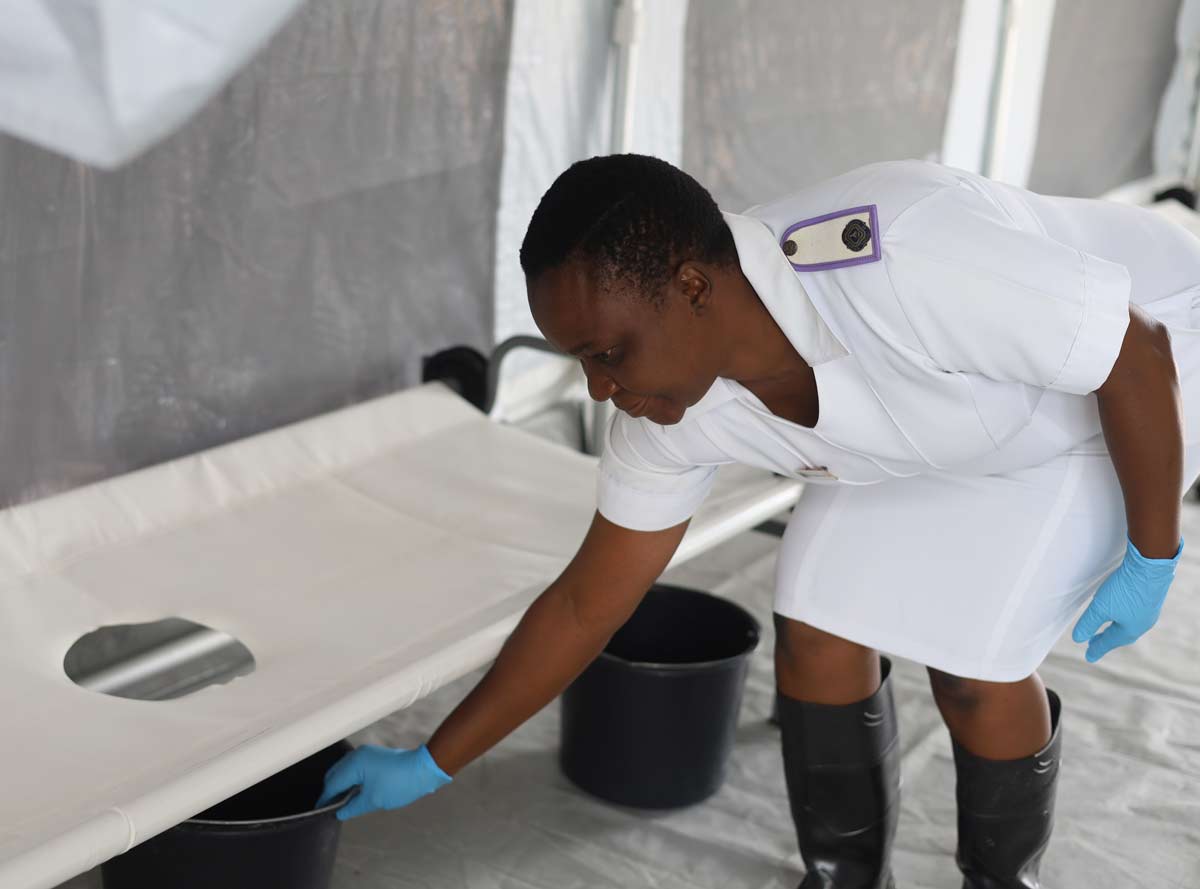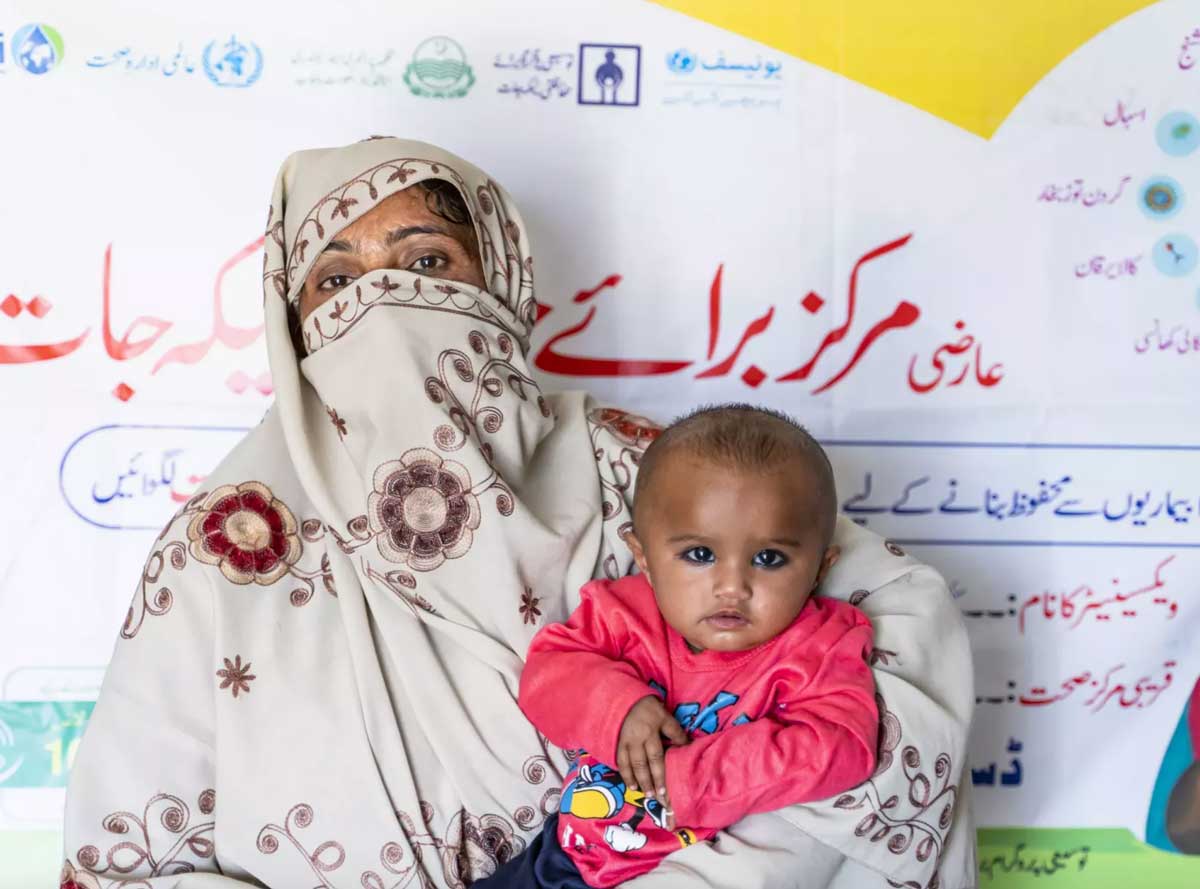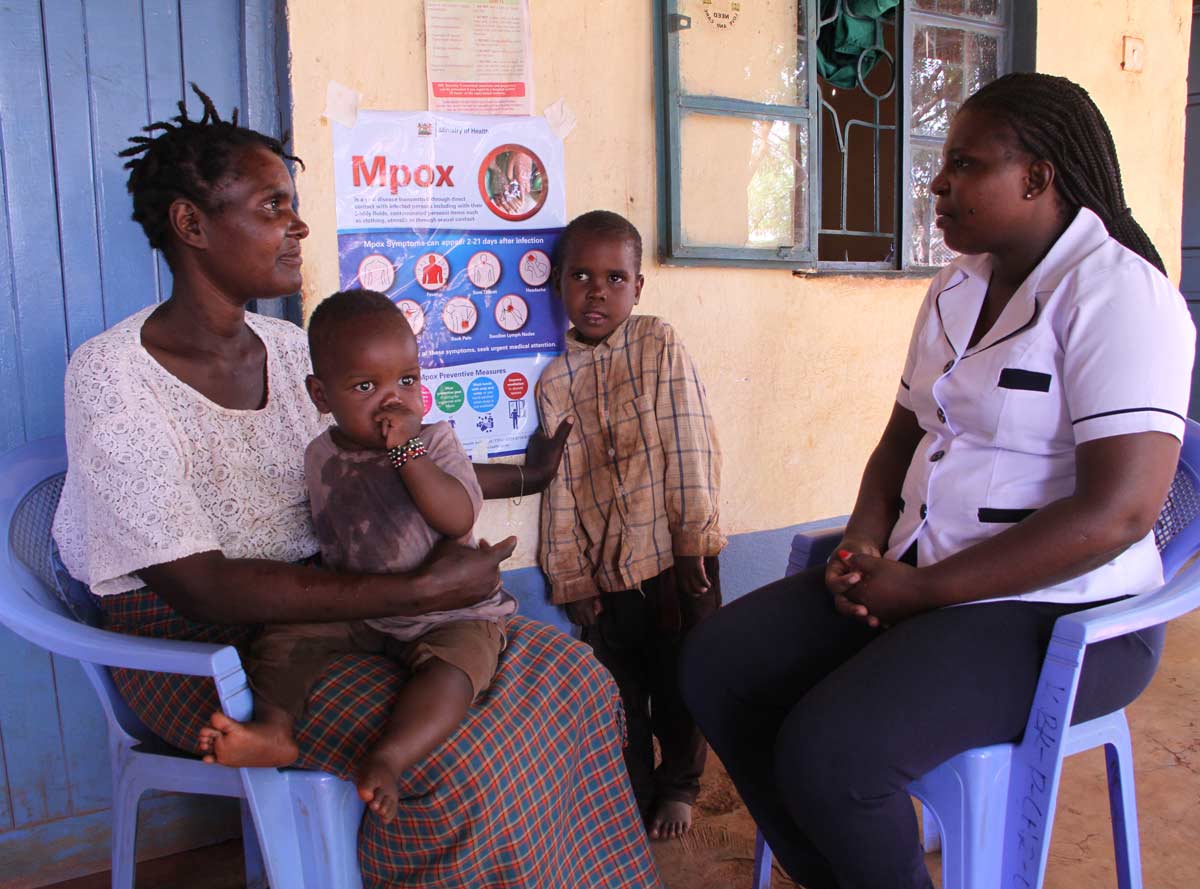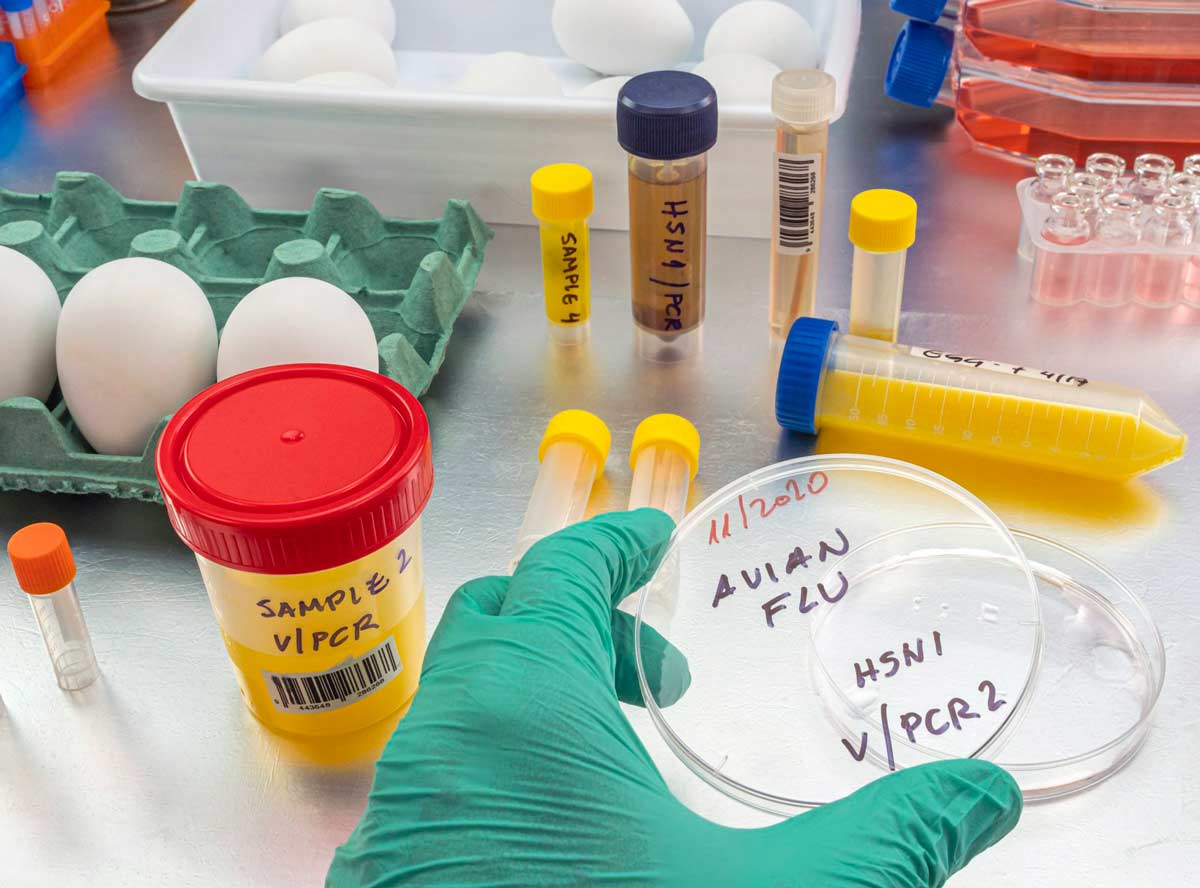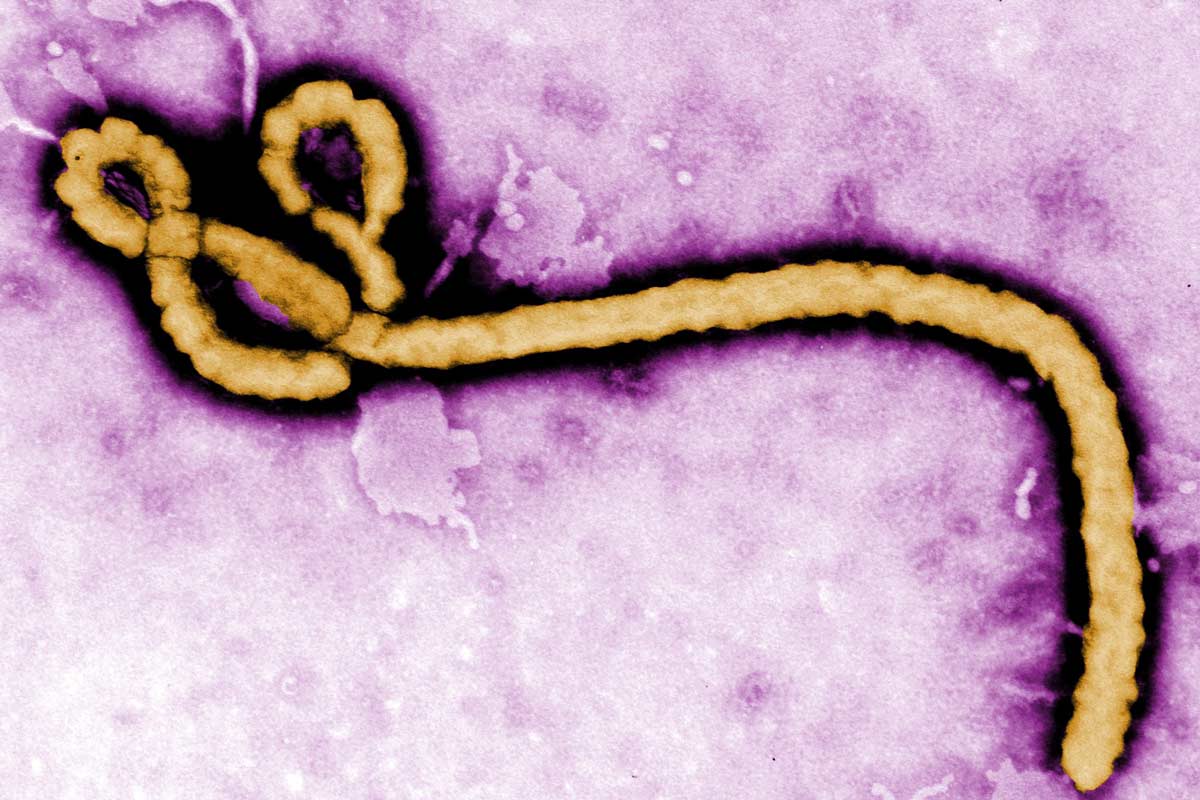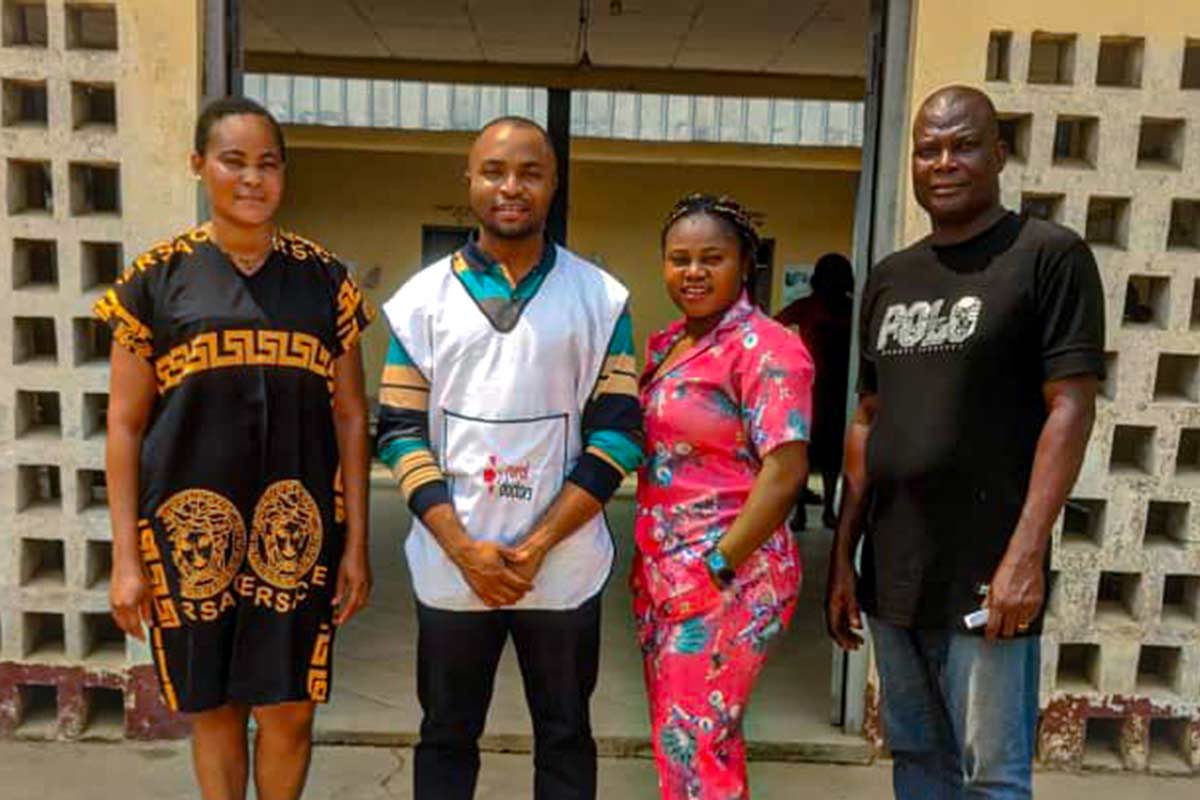Climate change spurs dengue crisis in Bangladesh
With more than 2,000 new dengue patients recorded each day, Bangladesh has converted Dhaka’s dedicated COVID-19 hospital into a dedicated dengue facility.
- 9 August 2023
- 6 min read
- by Mohammad Al Amin
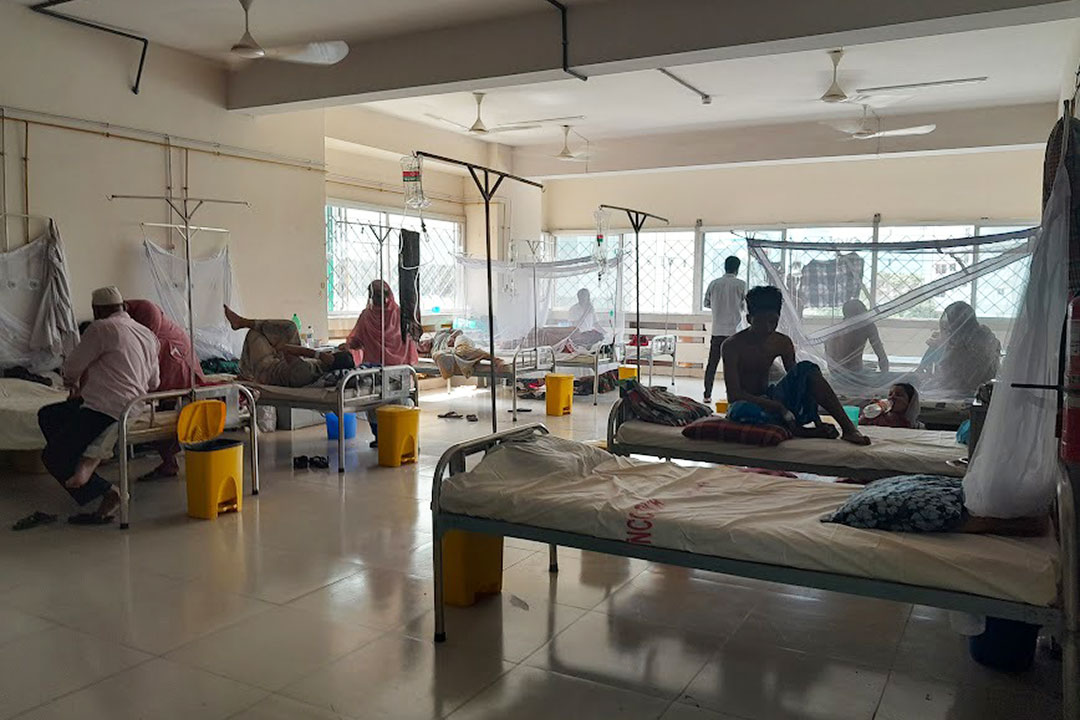
Bangladesh is struggling with a serious spike of dengue cases across the country. The epidemic’s epicentre is in Dhaka, the country’s capital. Health authorities and experts observe that climate change is playing a major role in the current surge of dengue transmission, which is plunging parts of the country into a fresh health crisis.
"I was suffering from serious fever, bleeding from mouth and severe body pain for past three day."
– Abdul Rahman, patient at Dhaka’s dedicated dengue hospital

Credit: Mohammad Al Amin
“I’m suffering from fever with body pain and headache for two days. I tested dengue positive today and rushed to this hospital instantly,” said Shoikat, aged 45, a private job holder from the Mugda Maniknagar area of Dhaka, who was admitted at DNCC Dedicated Dengue Hospital in Dhaka’s Mohakhali on July 25.
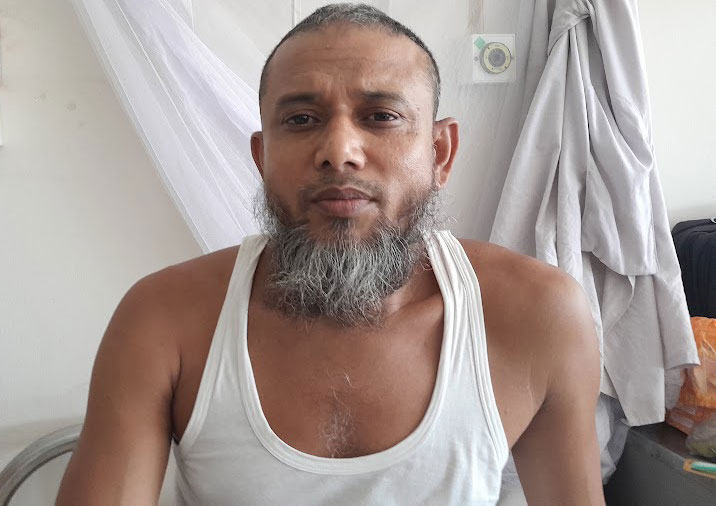
Credit: Mohammad Al Amin
Another dengue patient of the same hospital, Abdul Rahman aged 50, from Dhaka’s Dakkhin Badda, said he was diagnosed with dengue on 24 July and admitted to the hospital the same day.
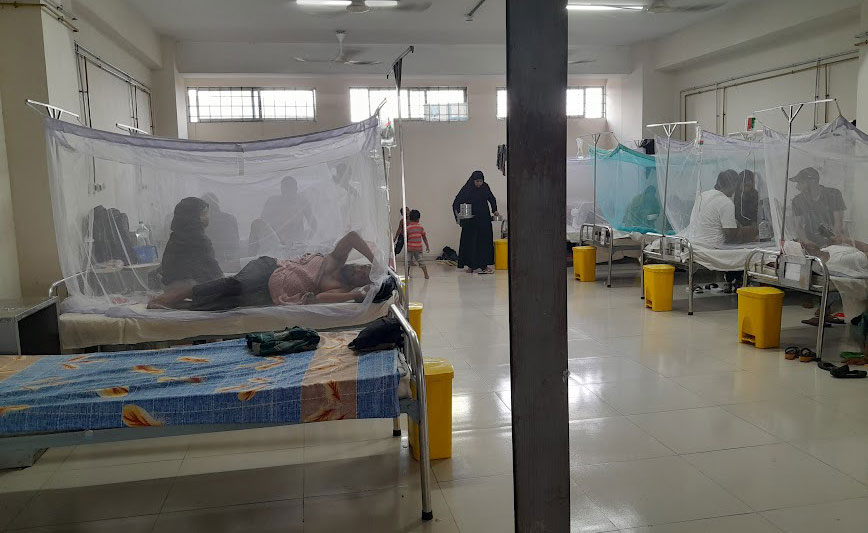
Credit: Mohammad Al Amin
“I was suffering from serious fever, bleeding from mouth and severe body pain for past three days. Then I was admitted here as per the advice of physician,” he said.
Faced with swelling numbers of dengue patients, the Bangladesh government turned what was the makeshift DNCC Dedicated COVID-19 hospital into a dedicated dengue facility on 12 July.

Credit: Mohammad Al Amin
“We are getting neither any off day, nor any rest, as dengue patients are rushing to this hospital 24 hours in a day. Even we can’t sleep for last few days.”
– Mafia Akter Priya, nurse
Mafia Akter Priya, a nurse at the DNCC Dedicated Dengue Hospital, said they are working through a tough time. “We are getting neither any off day, nor any rest, as dengue patients are rushing to this hospital 24 hours in a day. Even we can’t sleep for last few days.”

Credit: Mohammad Al Amin
Dengue has three major phases: mild fever, haemorrhagic fever, and shock syndrome, explained Dr Feroz Alam Jony, the duty doctor on the male ward of the DNCC Dedicated Dengue Hospital. Most of the patients being admitted to the hospital were experiencing haemorrhagic fever, he added.

Credit: Mohammad Al Amin
“Some patients also come to us with dengue shock syndrome. If any dengue patient goes into shock syndrome while undergoing treatment here, or comes with that condition, then we send them to our ICU [Intensive Care Unit] block for better treatment,” he said.
So far, 72,225 dengue cases have been recorded for 2023, with 340 deaths, making this the deadliest dengue year since Bangladesh’s first major outbreak in the year 2000.
Col AKM Johirul Hossain Khan, the hospital’s director, said the facility currently has a 500-bed capacity for dengue patients, which can be extended to 800 beds if necessary. “The number of patients has been increasing day by day in the hospital,” he remarked.
Have you read?
According to the Directorate General of Health Services (DGHS), the dengue situation in Bangladesh has continued to worsen with a record number of infections and fatalities this year. So far, 72,225 dengue cases have been recorded for 2023, with 340 deaths, making this the deadliest dengue year since Bangladesh’s first major outbreak in the year 2000.
In just the 24 hours before Tuesday August 8, 2,742 new cases were reported countrywide, and 13 patients died. The dengue epidemic continues to centre on the capital, with 1,002 of those new cases arising in Dhaka, but cases are being reported in all 64 districts of Bangladesh.
Many patients have remained outside the official data as they took treatment in the outpatient departments of hospitals, or in private doctors’ chambers.
Prof Dr Nazmul Islam, Director (Disease Control) of the DGHS said they have taken all necessary measures to ensure proper treatment of patients. “The dengue patients have been increasing. However, if the current trend continues, then the number of patients and fatalities may increase more,” he said.
He said separate dedicated dengue units and wards had been set up in public hospitals across the country, including in Dhaka.
Prof Dr Islam’s department conducts pre-monsoon, monsoon and post-monsoon Aedes surveys – the mosquito species that transmits dengue – and submits the report to Dhaka North and South City Corporations to facilitate their anti-mosquito drives, he said. The survey aims to discover Aedes breeding grounds, to track larvae and adult populations.
Khalilur Rahman, former chief entomologist at the DGHS, said climate change is playing vital role in increasing the seasonal dengue outbreaks in Bangladesh, as nine months of rainfall a year favours Aedes breeding conditions.

Credit: Mohammad Al Amin
“Aedes aegypti is playing a role in massive dengue transmission in Bangladesh, while [Aedes] albopictus has also been found here. Raining started in February this year and intermittent rain continues even this rainy season, while the Aedes mosquitoes are living in containers [reservoirs in which stagnant water collects], prompting a boom of the deadly disease,” Rahman explained.
Rahman said this trend of surging dengue transmission may continue until the end of September this year.
"Dengue transmission depends on the ecology of a particular area with potentiality of breeding by the Aedes mosquito. At the same time the climate change can bring change in duration of the virus incubation period."
– Dr Mahfuz Kabir
“There is no alternative [but] to destroy Aedes mosquitoes to control the dengue situation. Conducting anti-mosquito drives and public awareness is a must to tackle the situation,” the entomologist said.
The Ministry of Health and Family Welfare said it sent letters to all municipalities and city corporations including to the Dhaka North and South City Corporations in June, instructing them to conduct massive anti-mosquito drives.
Research Director of Bangladesh Institute of International and Strategic Studies (BISS) Dr Mahfuz Kabir, also a climate change expert, confirmed that the dengue crisis is linked with climate change as there is a correlation between the Aedes mosquito, vector of the disease, and weather and temperature patterns.
“The weather is one of the risk factors behind increasing the dengue transmission risk in any country or in any particular area. Dengue transmission depends on the ecology of a particular area with potentiality of breeding by the Aedes mosquito. At the same time the climate change can bring change in duration of the virus incubation period,” he added.
Kabir further said dengue virus transmission is increasing in the Dhaka city as climatic conditions become more suitable here for Aedes reproduction, and favourable for the virus’s incubation.
A World Bank report published in October 2021 says over the past 44 years, Bangladesh experienced a 0.5°C temperature increase, while the summers are getting hotter and longer, winters are warmer, and by 2050, the temperatures of the country are predicted to rise by 1.4°C.

